Processed Deli Meats
Experts have stated that you should ditch the deli for various reasons. Many professional dietitians have gone on to say that even the lower-fat cured deli meat versions contain sodium nitrate, which might enhance internal inflammation. This chronic inflammation is known to promote atherosclerosis.
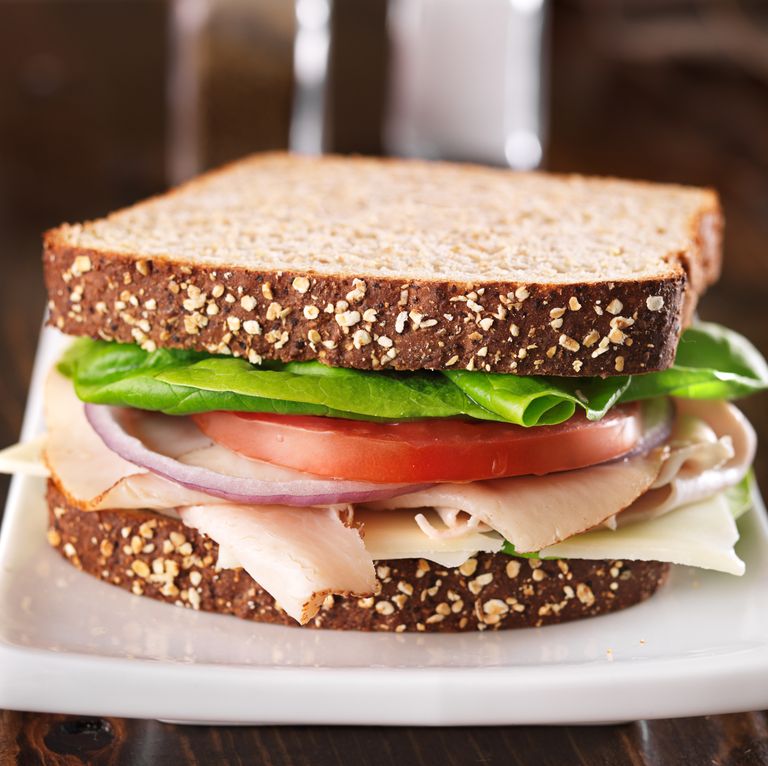
Processed Deli Meats
Hot Dogs
Hot dogs aren’t good for your heart for similar reasons associated with cold cuts. Sausages and hot dogs are known to have high-fat saturation. With that being said, even low-fat options are packed with salt, which can lead to higher blood pressure.
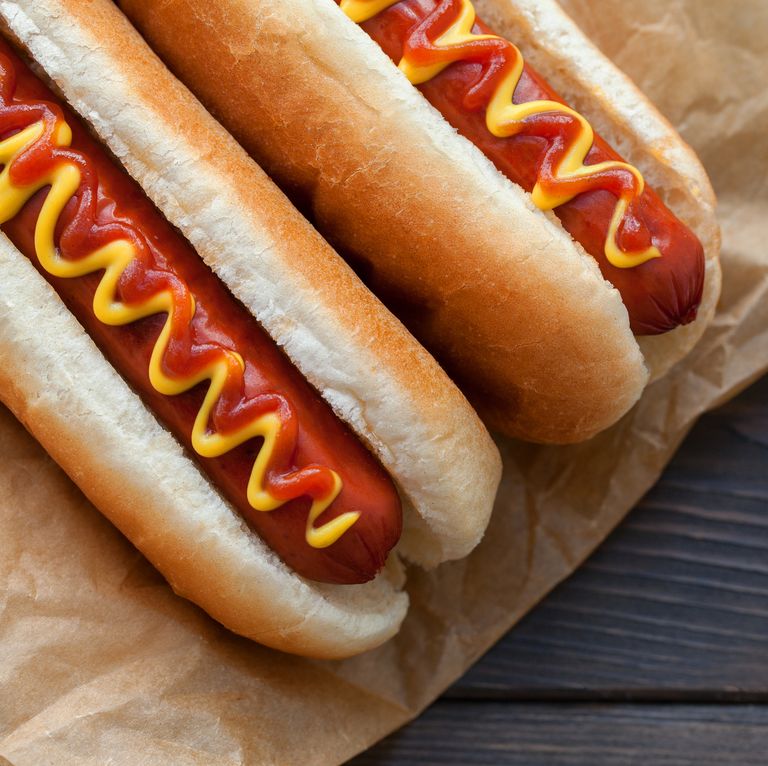
Hot Dogs
Rotisserie Chicken
Supermarket roasted birds often contain far more saturated fat and sodium than your typical home-cooked poultry products. For this reason, experts don’t recommend completely abandoning chicken, but rather roasting it at home because you have control over the amount of sodium you use.

Rotisserie Chicken
Ketchup
It isn’t a secret that ketchup and many other store-bought are loaded with enormous amounts of sodium and sugar, which certainly aren’t good for your heart’s health. Ketchup has the reputation of being packed with sodium. It’s safe to say that avoid this condiment would do your heart the world of good.
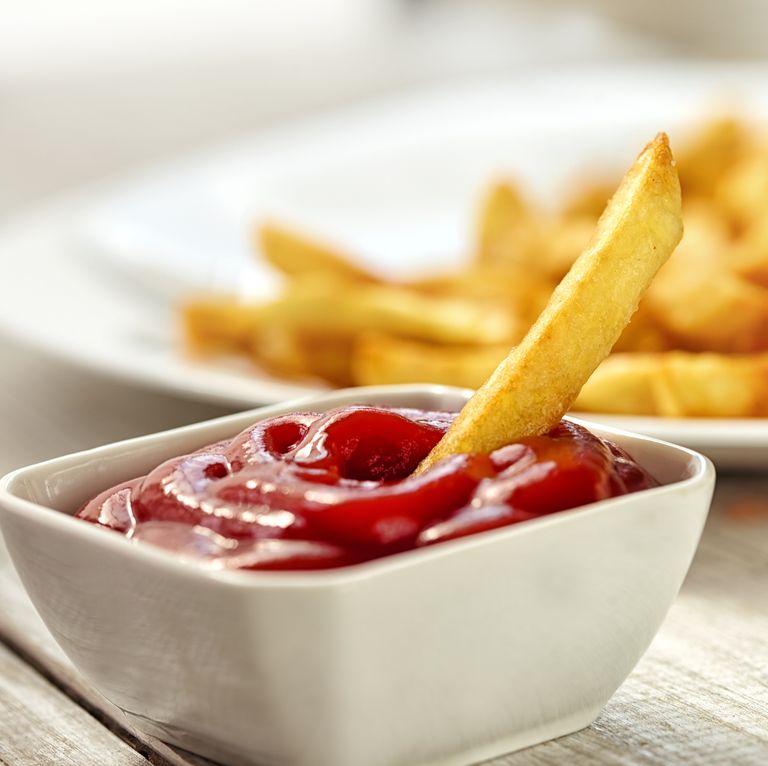
Ketchup
Barbecue Sauce
As you would expect, barbecue sauce, like ketchup, is bad for your heart health. For this reason, you should steer clear of using barbecue sauce (or at least go light on it). A mere two tablespoons from a common barbecue bottle contains 310 milligrams of sodium.

Barbecue Sauce
Table Salt
Almost 70 percent of our entire sodium consumption comes from foods that we get in packages or restaurants. An additional 15 percent is found naturally in many ingredients. Nonetheless, this leaves other 15 percent of the sodium that we’re in control of utilizing, which is primarily through salt consumption. Going lighter on the saltiness is bound to help your heart.
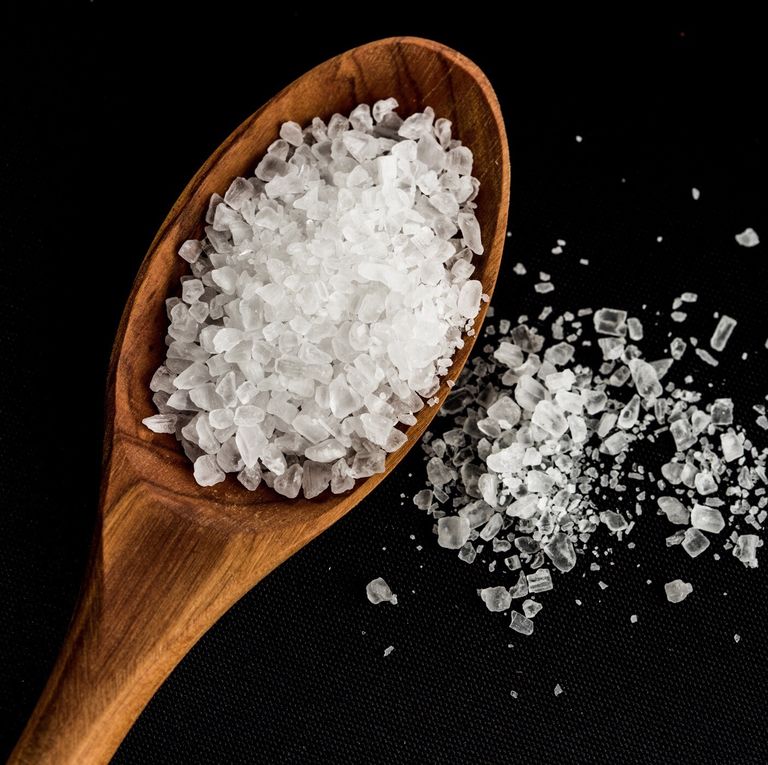
Table Salt
Reduced-Fat Salad Dressings
Reduced-fat salad dressings can be classified as a cardiac crime as these dressings are a source of hidden salt and sugar. Experts have stated that additional sugar is added when fat is removed, as this helps maintain the taste of the dressing.
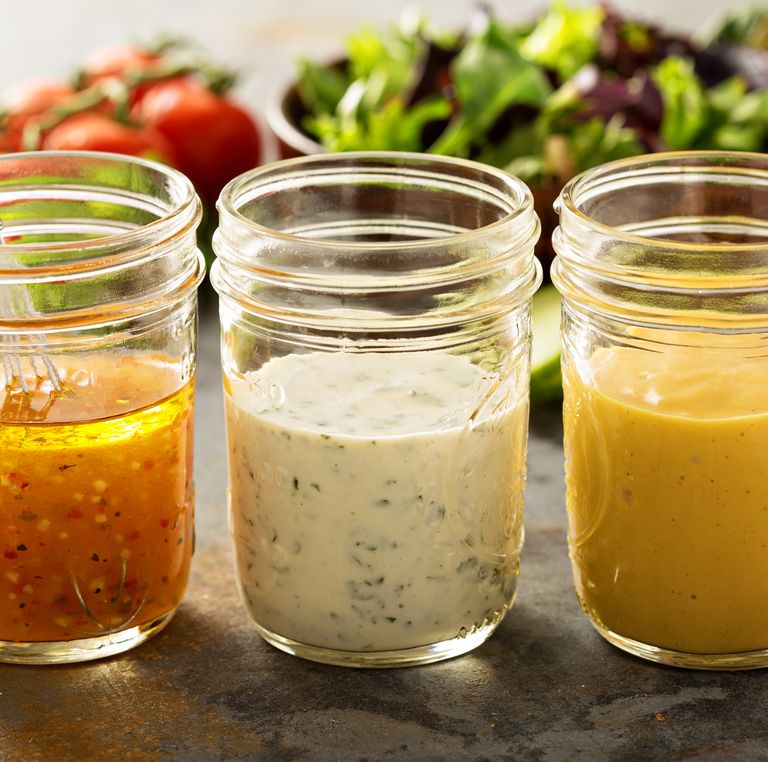
Reduced Fat Salad Dressings
Fat-Free Packaged Snacks
Something far worse than reduced-fat is a product having zero-fat. Packaged snacks with zero-fat were once seen as a healthy option for those who wish to lose weight and maintain a healthy lifestyle. However, what these products make up for fat they gain in sugar.
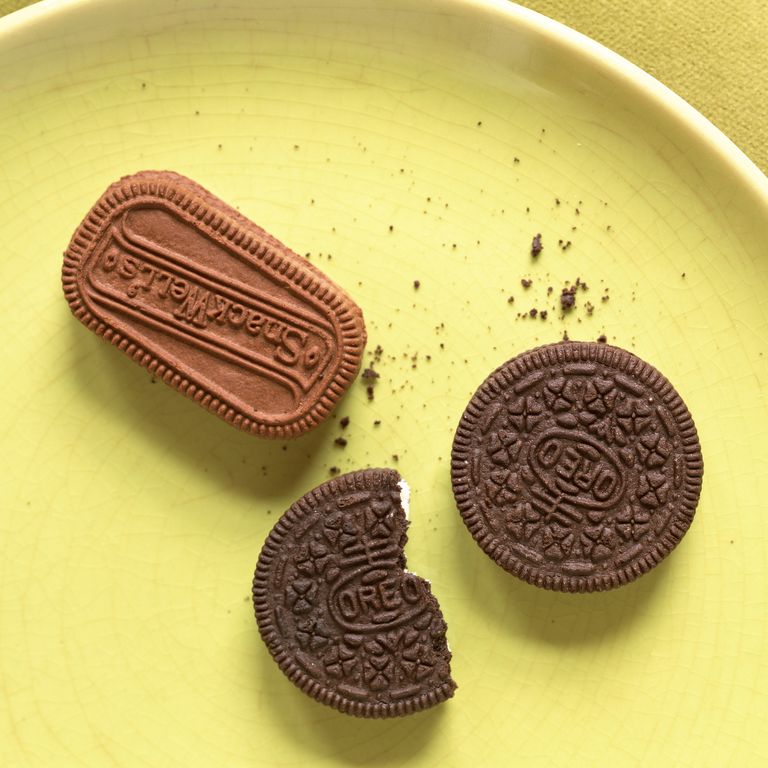
Fat Free Packaged Snacks
Fat-Free Peanut Butter
When choosing peanut butter, you should go for a full-fat, all-natural, and sugar-free butter as this is a source of heart healthy mono-saturated fats. However, fat-free and low-fat peanut kinds of butter contain enormous amounts of sugar and typically have just as many calories as the full-fat versions.
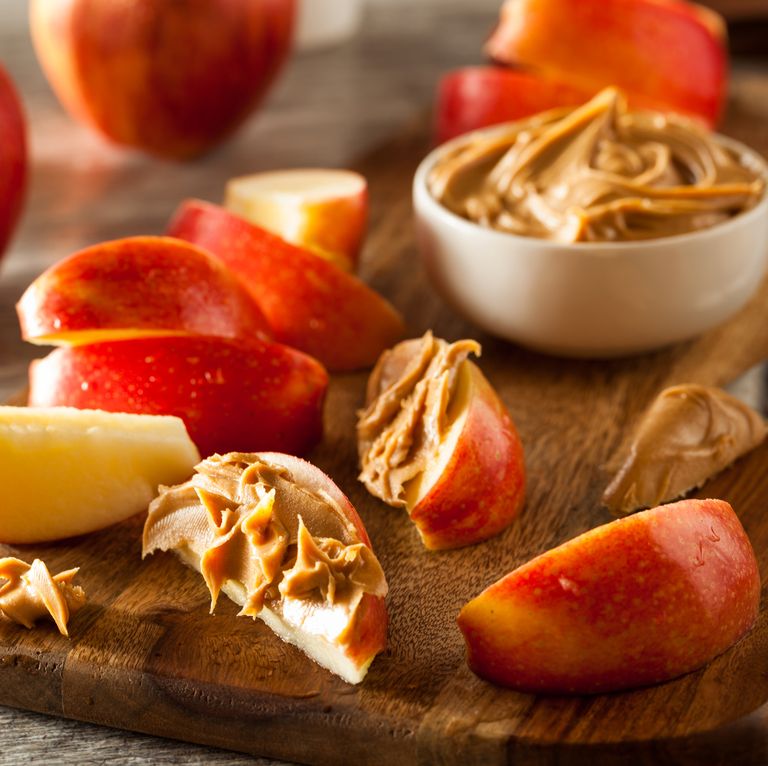
Fat Free Peanut Butter
Sugary Cereals
This is another classic example of not all fats being bad for you. Some cereals don’t offer any nutritional benefits while being packed with sugar. When choosing cereals, you should look at the nutritional value and steer clear of cereals with more than eight grams of sugar.
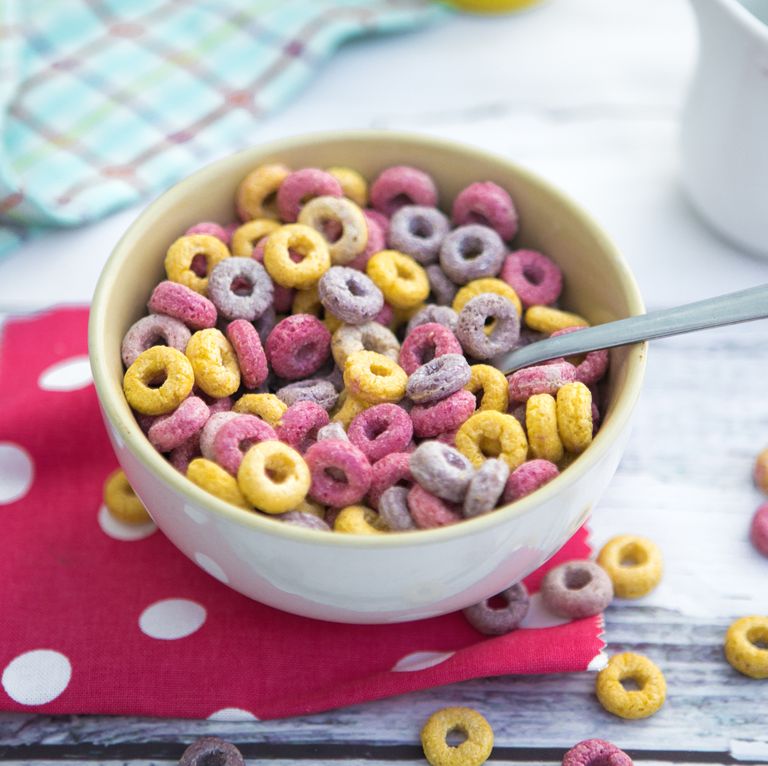
Sugary Cereals
Flavored Milk Alternatives
Not all flavored nut milk products are made equal. Sweetened and flavored milk substitutes are all across supermarket shelves, which makes it difficult to choose the healthiest option. Many experts choosing unsweetened options, as other alternatives are loaded with sugar.
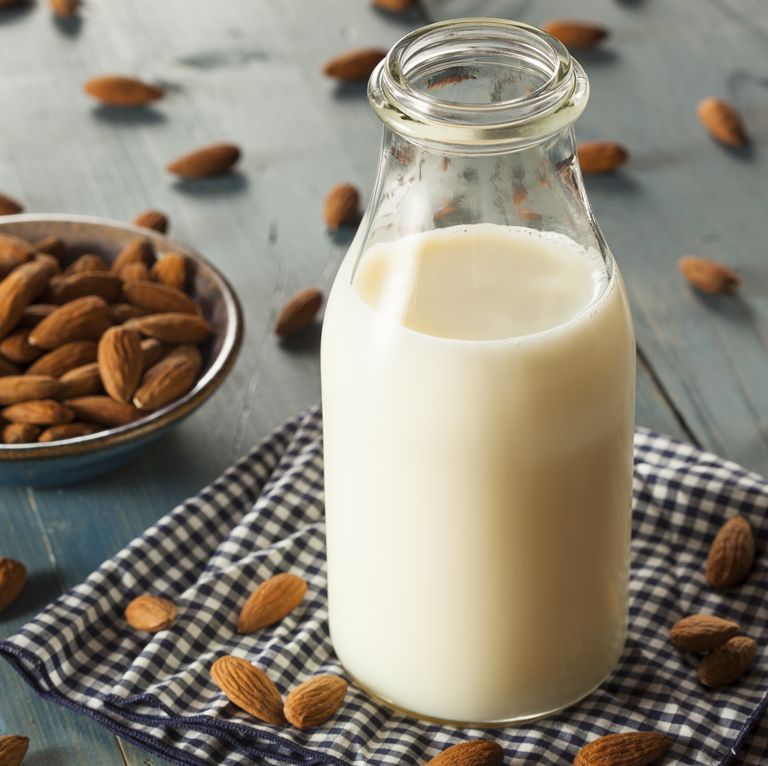
Flavored Milk Alternatives
Fried Chicken
It isn’t a push to state that more fried food equals more health issues. Studies have shown that people who eat significant amounts of fried foods are at a higher risk of coronary artery season. Oils used to cook fried chicken contain trans-fat, which increases the bad form of cholesterol.
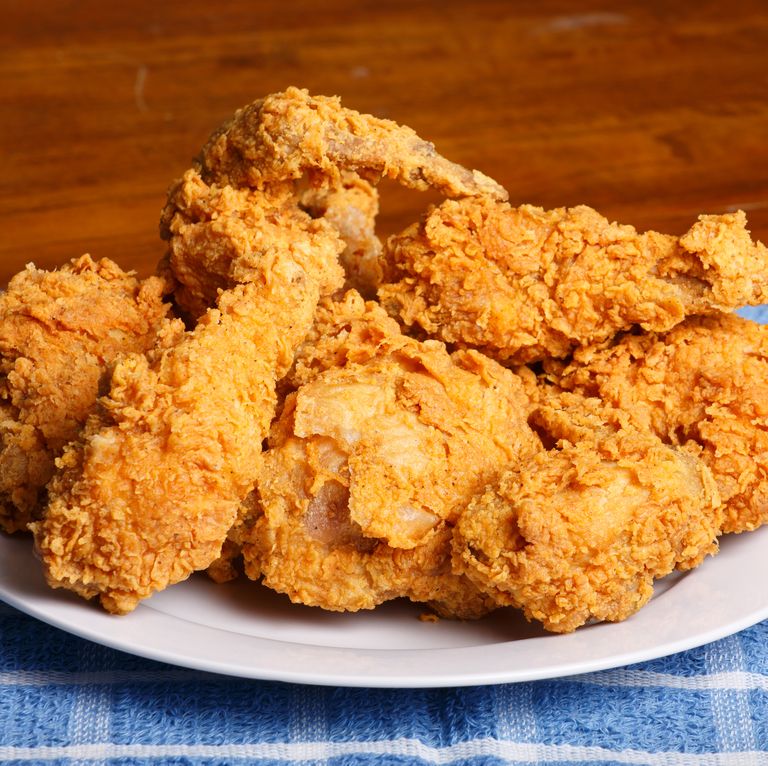
Fried Chicken
French Fries
It’s not only fried chicken that’s bad for your heart. High potato consumption is linked to an increased risk of type 2 diabetes and hypertension. Not to mention, frying up some French fries delivers a massive punch to your cardiac health.
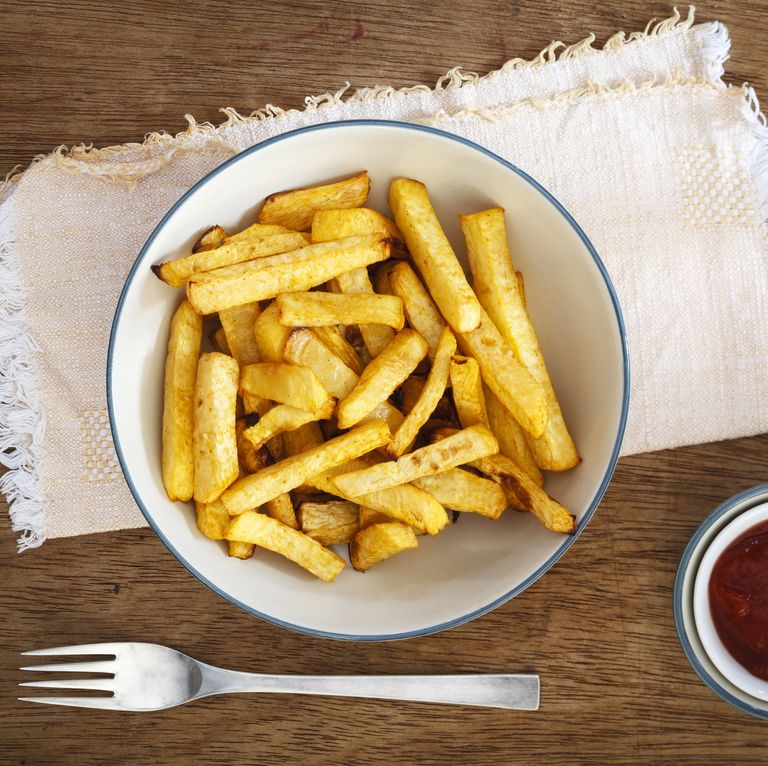
French Fries
Potato Chips
From a medical study performed by the New York Journal, increased servings of potato chips caused more weight gain than any other foods. This includes red meat, processed meats, and sugary drinks. Adding to this, potato chips offer low fiber and protein contents and are a high source of sodium.
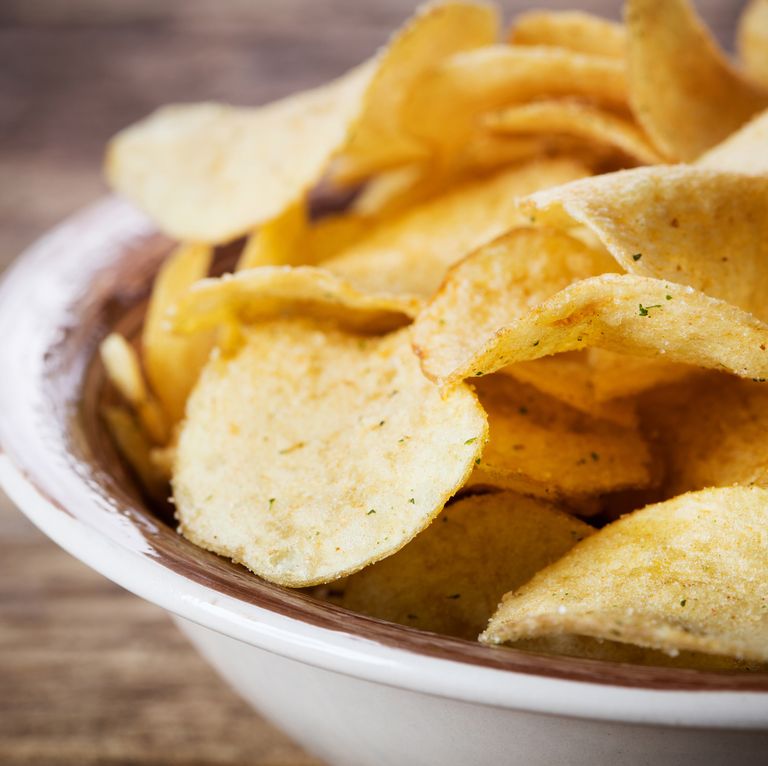
Potato Chips
Fruit Smoothies
The immense amount of sugar and the deceptive serving sizes from these fruit smoothies can be detrimental to your health. The worst part is that there’s a common misconception that fruit smoothies are healthy, which encourages people to drink more.

Fruit Smoothies
Green Juices
Experts have said the same for green juices. A recommendation that comes with downing these green juices is to be mindful of your portion size when doing so. Although bottles and restaurant servings are made for one, it’s likely only suitable for two or more servings.
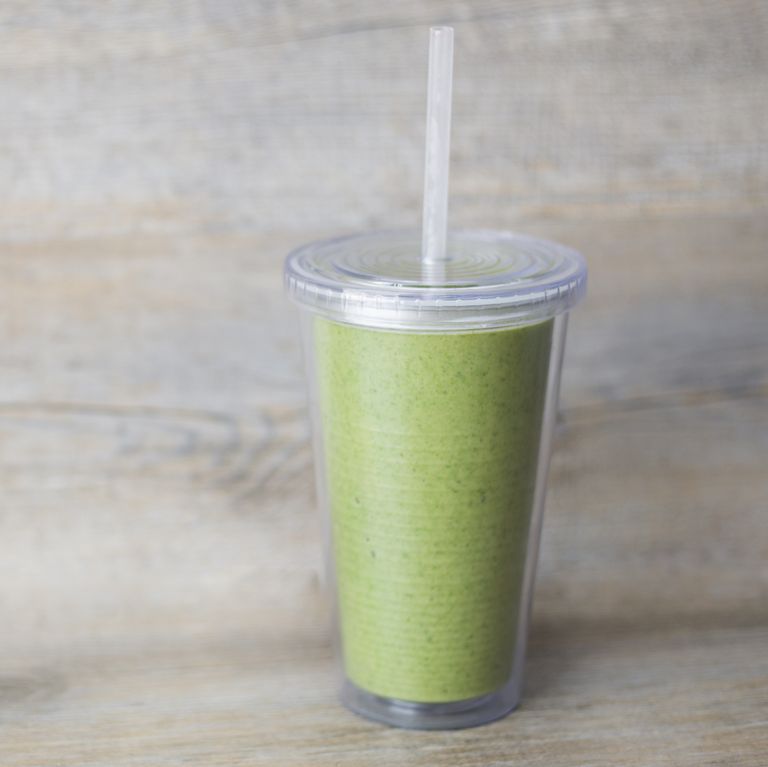
Green Juices
Canned Soups
The sodium contents of canned soups generally vary. Nonetheless, most broths contain approximately 500 milligrams of sodium in each cup serving. Due to this, you’re likely to eat more than one-third of your daily sodium limit in a serving of canned soup.
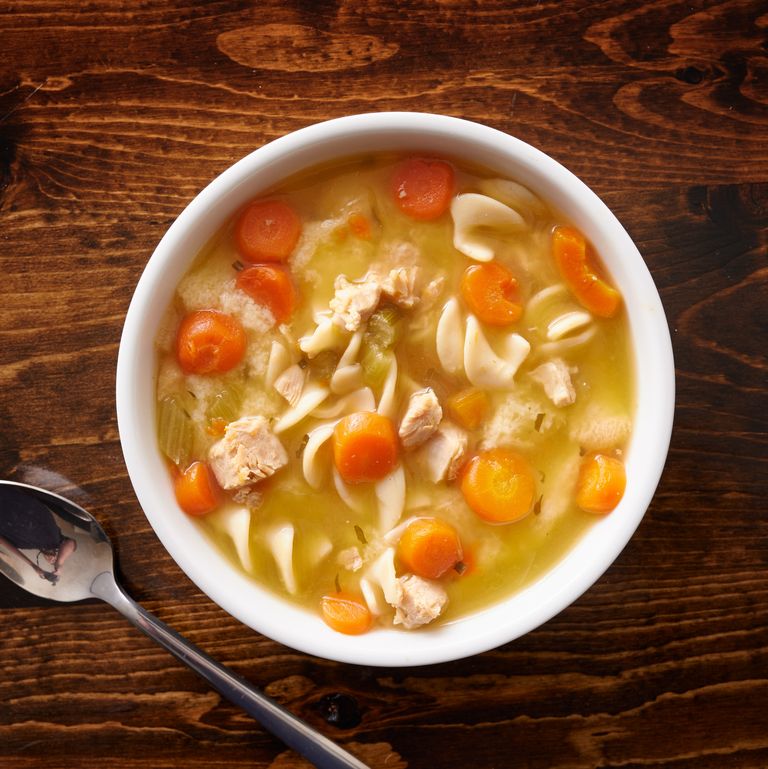
Canned Soups
Canned Vegetables
This rule doesn’t apply to all canned vegetables, and some can work well for weekly meals. Nonetheless, some of these canned vegetable products are packed with excess sodium. This can make a vegetable have more salt than a processed snack product.
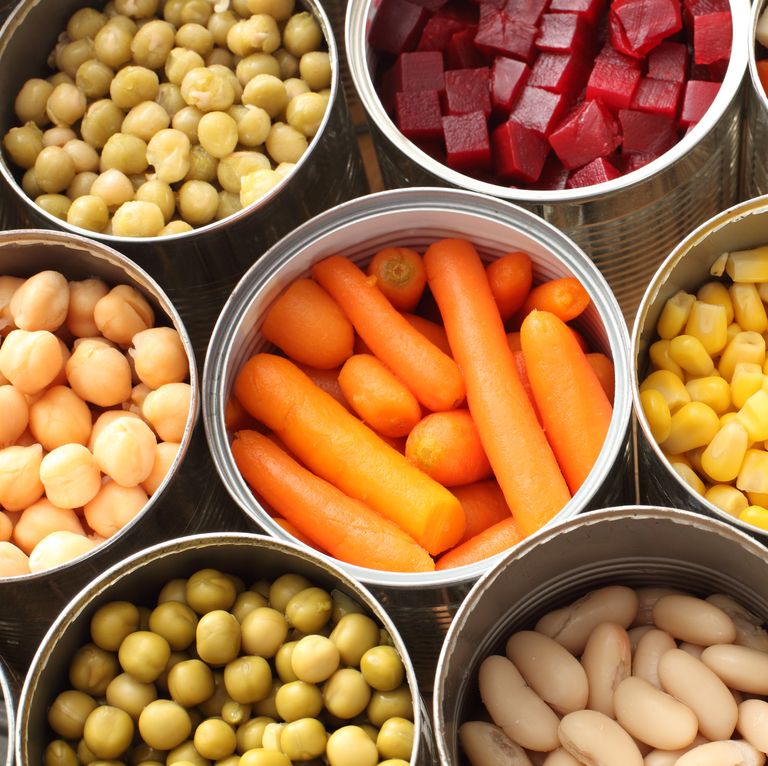
Canned Vegetables
Capers
Even though these capers contain almost no calories, these can easily crank up the sodium level of whatever you’re adding these tiny flower buds. As this product is pickled in a salty brine, a tablespoon of capers can have approximately 400 milligrams of sodium.
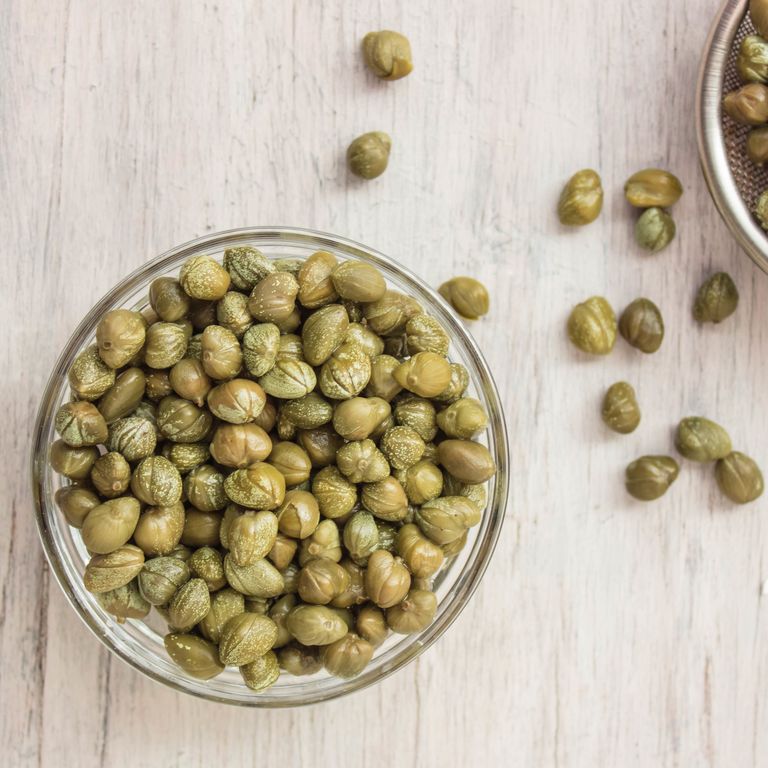
Capers
Fruit-Flavored Yogurt
In some cases, it’s good to go for the boring option and get plain Greek yogurt. Research has shown that fruity yogurts can have as much as six teaspoons (or more) of sugar in each serving. A better choice for your heart’s health is Greek yogurt and mix frozen or fresh fruit instead.
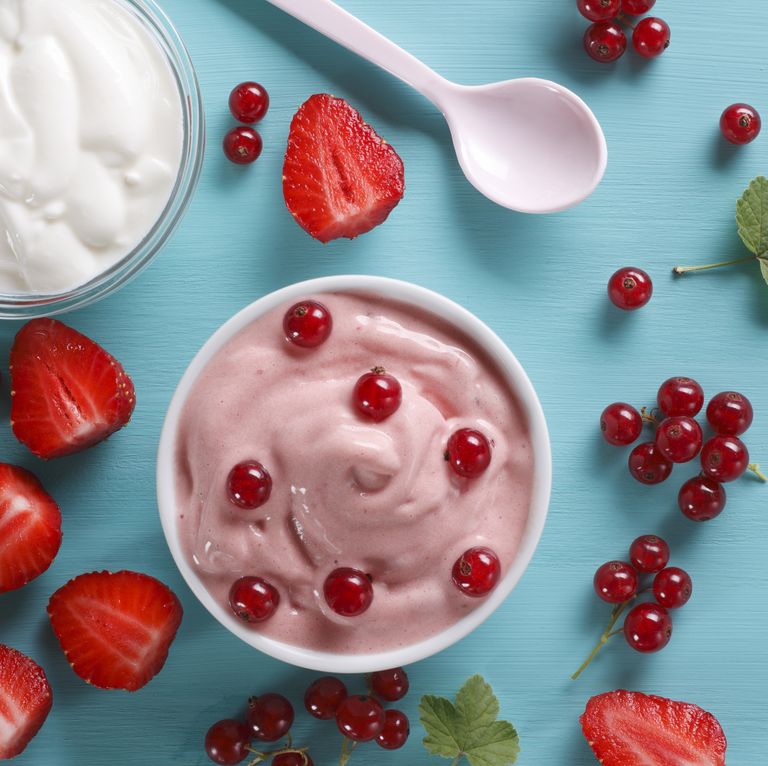
Fruit Flavored Yogurt
Granola
Granola is a morning favorite that tends to crank up the number of calories you have during breakfast rapidly. This is especially the case if you aren’t mindful of your portion sizes. Most granola products are loaded with sugar and don’t provide essential fiber or nutrients.
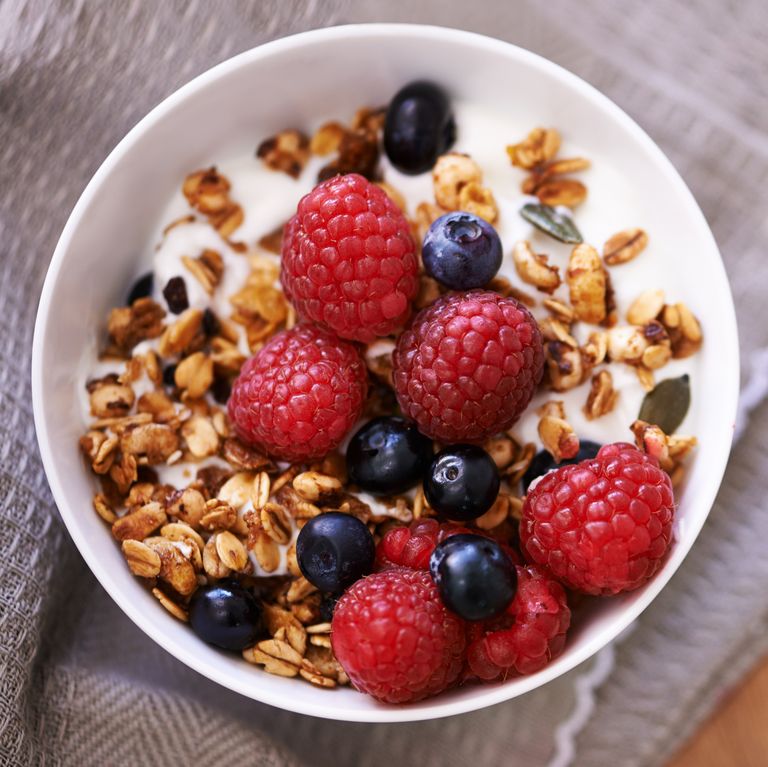
Granola
Fancy Coffee Drinks
Your entire daily sugar consumption might be consumed in your cup of coffee. If this isn’t shocking enough, a large blended Frappuccino might contain more carbohydrates than four and a half slices of bread, but without any nutritional value or fiber.

Fancy Coffee Drinks
Coffee Creamer
Drinking your office without any non-dairy coffee creamer. Most coffee creamer products contain hydrogenated oil or trans-fat that enhances your risk of contracting plague in the arteries of your heart. Not to mention, some fat-free options are loaded with calories.

Coffee Creamer
Margarine
Butter isn’t that bad when you’re looking at the bigger picture. A study has shown that butter doesn’t have a prevalent link between heart disease. Instead, margarine seems to be the bigger cardiac crime, as it’s full of saturated fats and additives.

Margarine
Pastries
Donuts, danishes, and other baked goods are known for being high in white flour, sugar, and fat. However, these pastries might also be transporting trans fats to your heart. This can increase your chance of getting heart disease while lowering your heart’s good cholesterol.

Pastries
Crescent Rolls
It’s always important to look at the nutrition facts of these crescent rolls. Even a small amount of trans fat and hydrogenated oils can rapidly add up after multiple rolls. It is an option to only eat one portion, but why would you risk it?

Crescent Rolls
Frozen Meals
There’s no doubt that frozen meals are convenient, but that doesn’t mean these meals are healthy. You should take a look at the product’s sodium content to see what you’re going to put your heart through. This is because frozen meals are known for having a high sodium content.
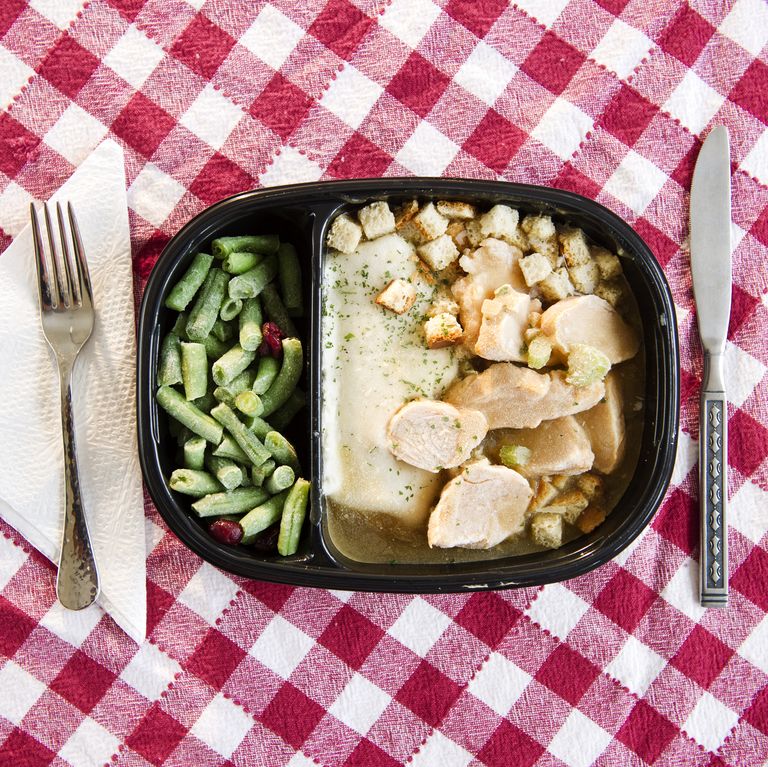
Frozen Meals
Energy Bars
Many meal replacement and energy bars are fancy candy bars that are purely marketed as being healthy for your heart and body. Some of these health bars are crafted with real food, but many offer no nutritional value and only tarnish your heart health.
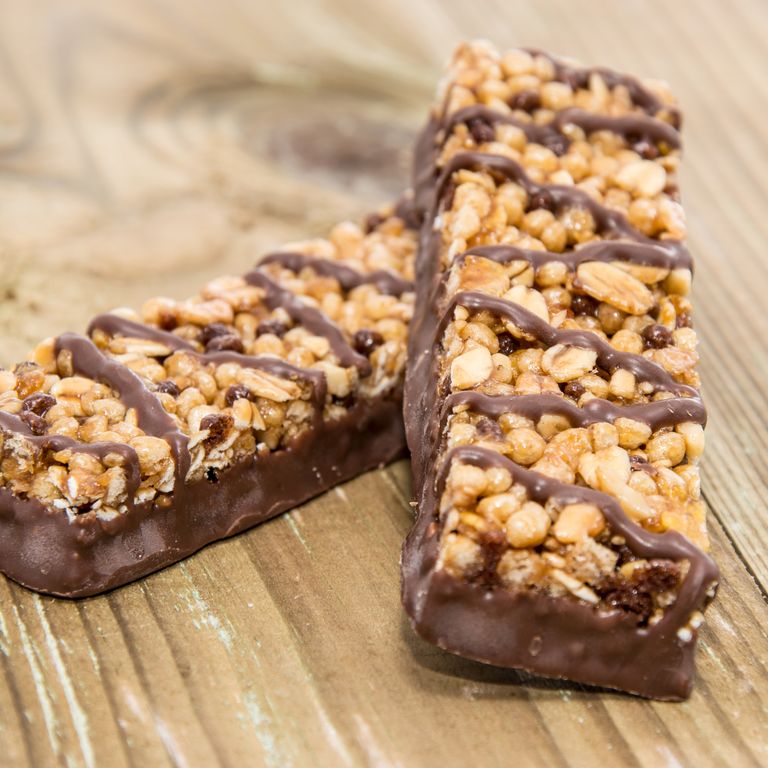
Energy Bars
Candy Bars
Candy bars offer many ingredients that place your heart under the ringer. Research has shown that the companies behind candy bars funded studies that stated fat as the culinary criminal heart disease. However, the immense amounts of sugar in these candy bars do much worse to your heart.

Candy Bars
Red Meat
From the research provided by various experts, you should aim to integrate more plant-based protein products into your diet. These include nuts and beans, which can work to give your heart health a boost. This is because red meat consumption has been linked to an increased risk of cardiovascular.
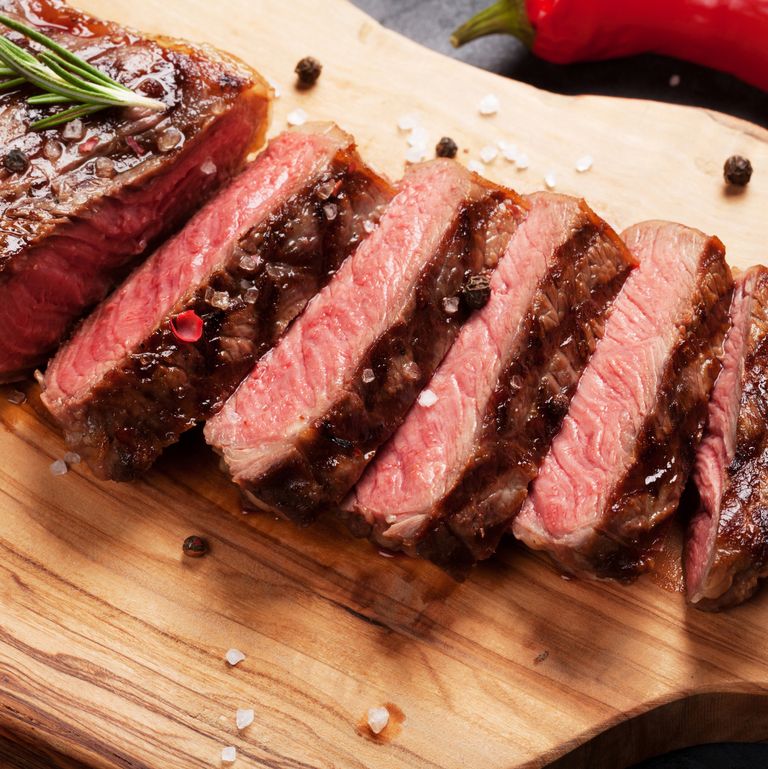
Red Meat
White Bread
One of the six biggest sources of sodium in the average American’s diet is bread and rolls. Many whole grains can be an excellent source of vitamins and fiber, but white bread doesn’t offer any of this. Instead, it can contribute to the development of heart conditions and diabetes.
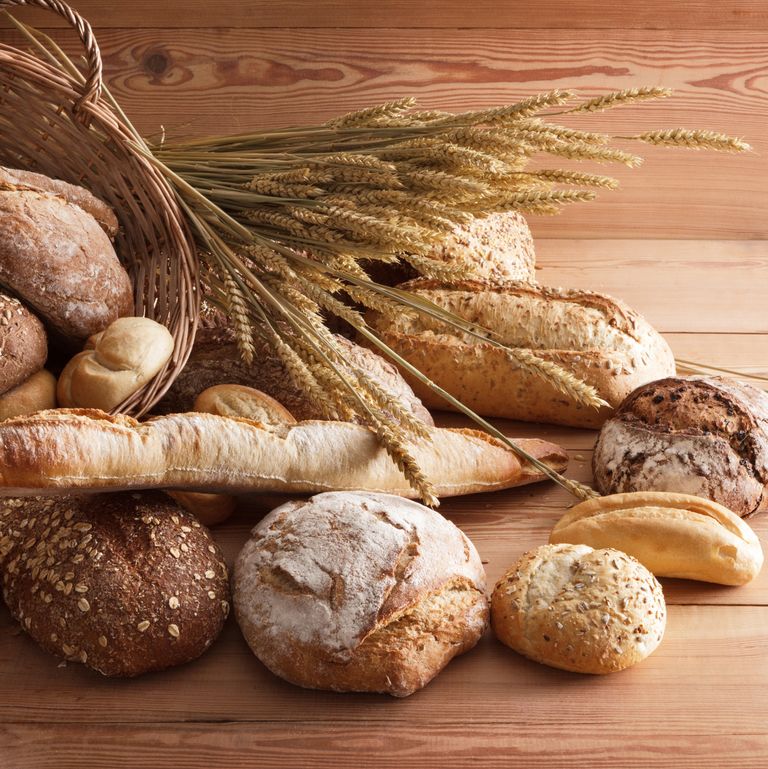
White Bread
White Rice
Processed white ranked high up alongside processed bread when it comes to products that harm your heart. Highly processed carbohydrates, like white rice, increase belly fat. This is a risk factor for coronary disease and diabetes. For this reason, you should rather consume brown rice.
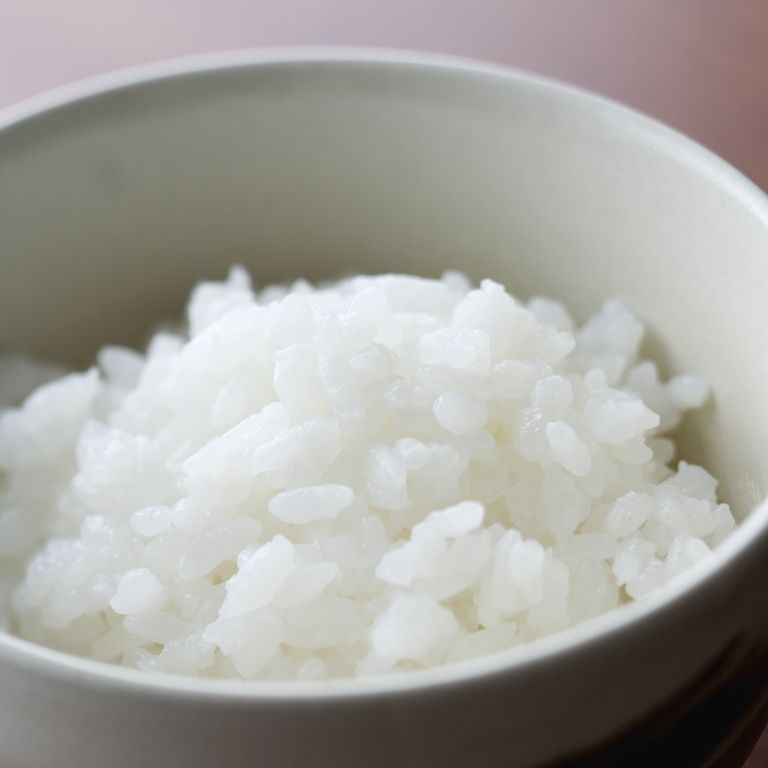
White Rice
Sports Drinks
Water is undoubtedly the ultimate health elixir. Experts have stated that the average person can replenish muscle glycogen and electrolytes with a minimal post-workout shake or meal. You don’t need sports drinks that are loaded with sugar and can lead to increased blood pressure.
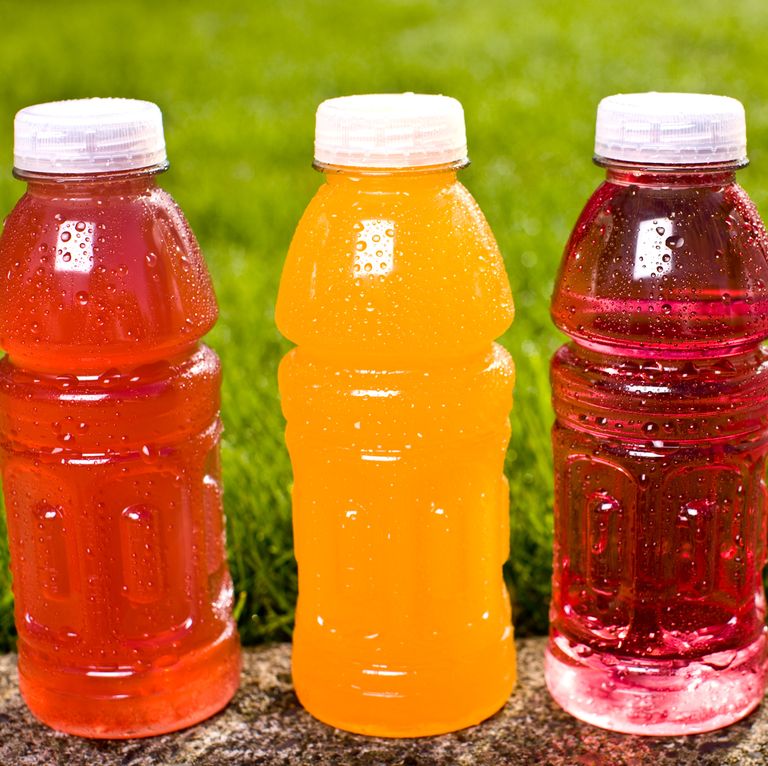
Sports Drinks
Energy Drinks
Similar to sports drinks, energy drinks are amped with tons of sugar and caffeine. Due to this, drinking these energy drinks can place your heart under immense stress. One shocking revelation is that one 16-ounce energy drink can elevate your stress hormones and blood pressure.
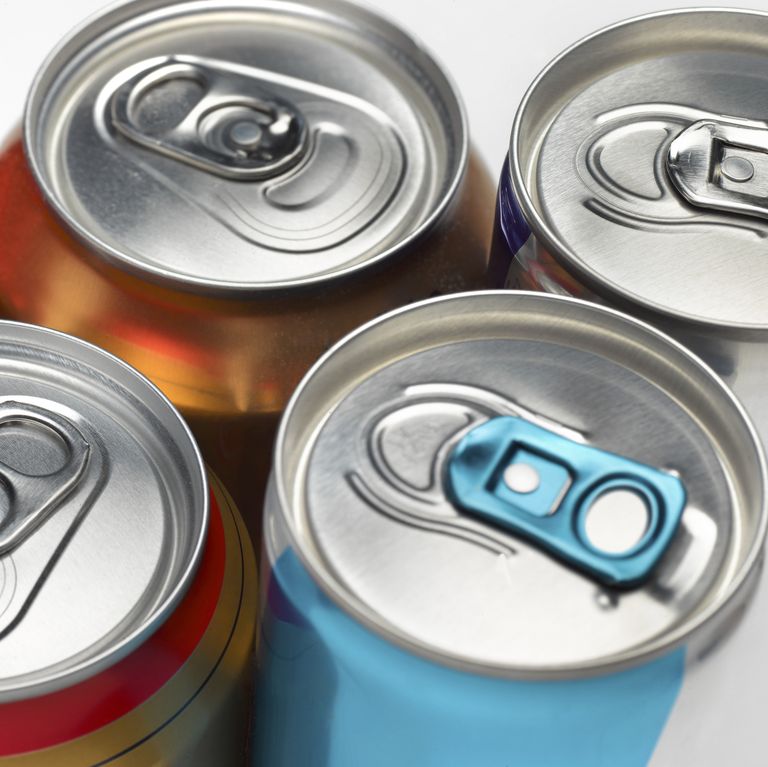
Energy Drinks
Soda
In addition to this, sugar-sweetened beverages consist of more than half of all added sugars in the average American’s daily diet. The immense amount of sugar in these drinks is incredibly unhealthy for your heart. Over-consuming soda products can increase your risk of a stroke, heart disease, and atherosclerosis.
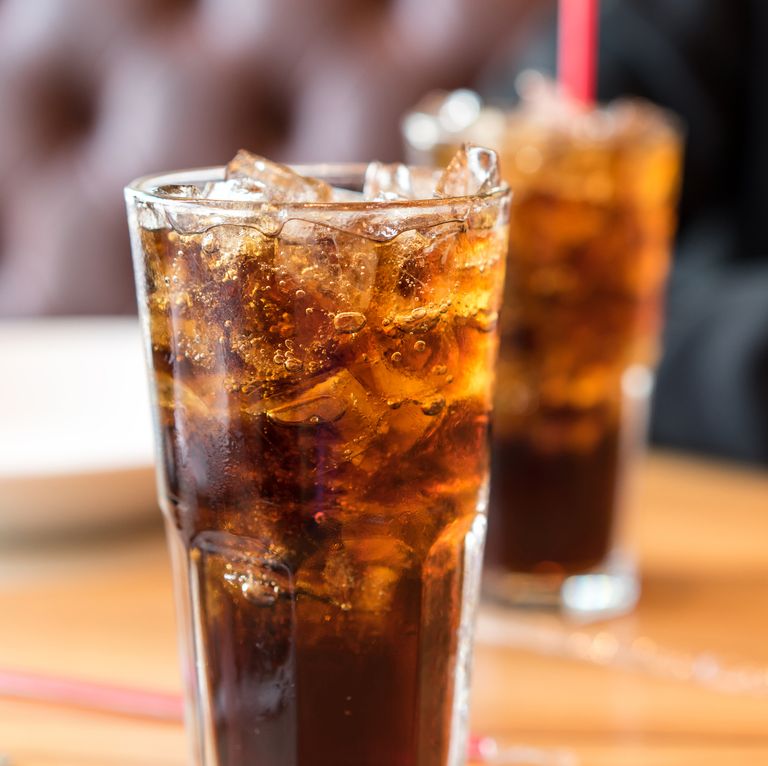
Soda
Diet Soda
You might believe that diet soda is better for your heart than normal versions of soda. However, we’re afraid we need to burst your bubble as artificial sweeteners are the solution. The chemicals in these products can alter gastrointestinal bacteria, causing weight gain and more stress on your heart.
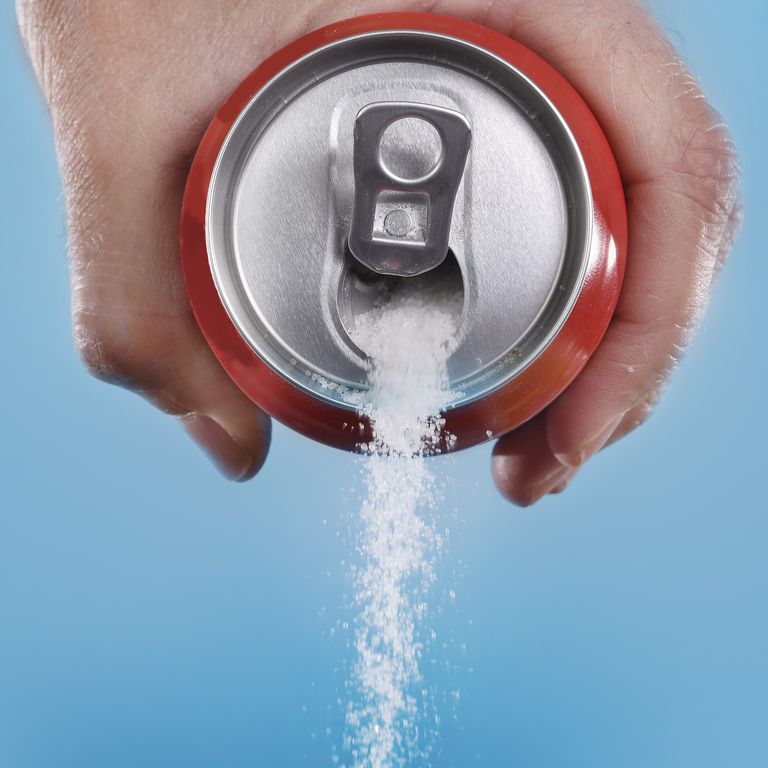
Diet Soda
Pizza
Another food that’s seen as one of the saltiness is pizza. It’s packed with many different toppings, which all seem to have high levels of sodium. Due to this, one slice of this pizza can quickly account for half of your daily sodium intake.

Pizza
Marinara Sauce
While processed pizza is bad for your health, so is the sauce that you put on it. The average marinara sauce is loaded with more than 400 milligrams of sodium and four grams of sugar. Rather use olive oil or low-sodium alternatives.
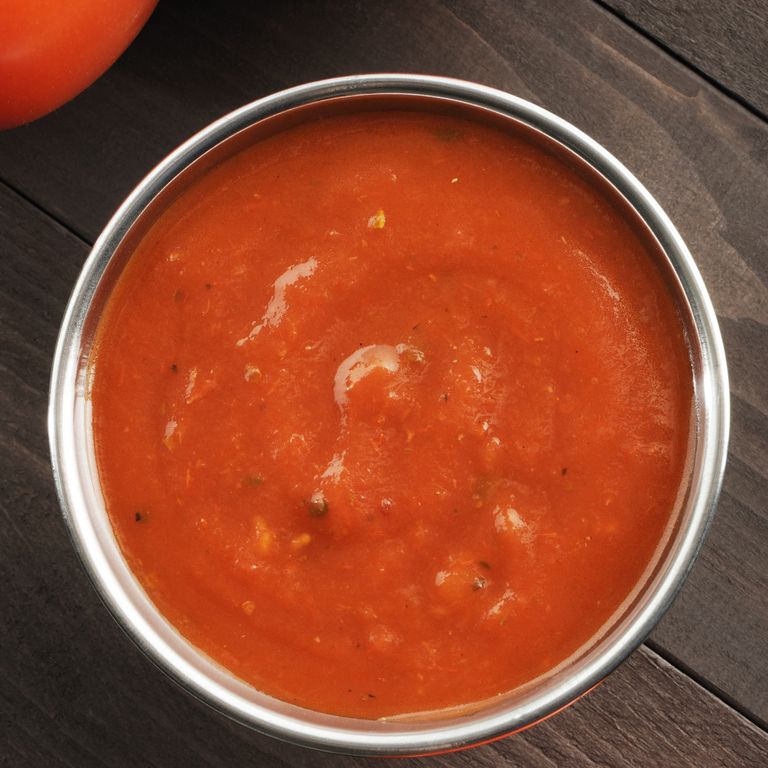
Marinara Sauce
Candy
Jelly beans, hard candies, sour gummies, and many other candy culprits are massive contributors to the ever-growing heart problems faced by many Americans. These immense sugar intakes play a large role in deteriorating your heart’s health and can cause cardiovascular disease.
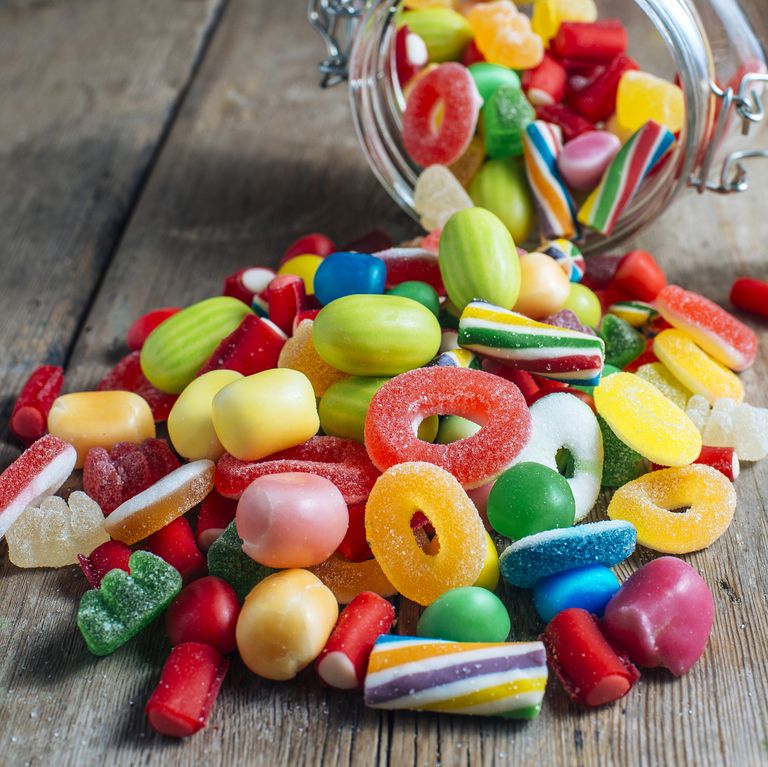
Candy
Alcohol
Everything should be done in moderation. However, you’re already prone to suffering from high blood pressure if you regularly overindulge in alcohol. In addition to this, heavy drinkers can see massive weight gain, which is linked to developing heart disease.

Alcohol




